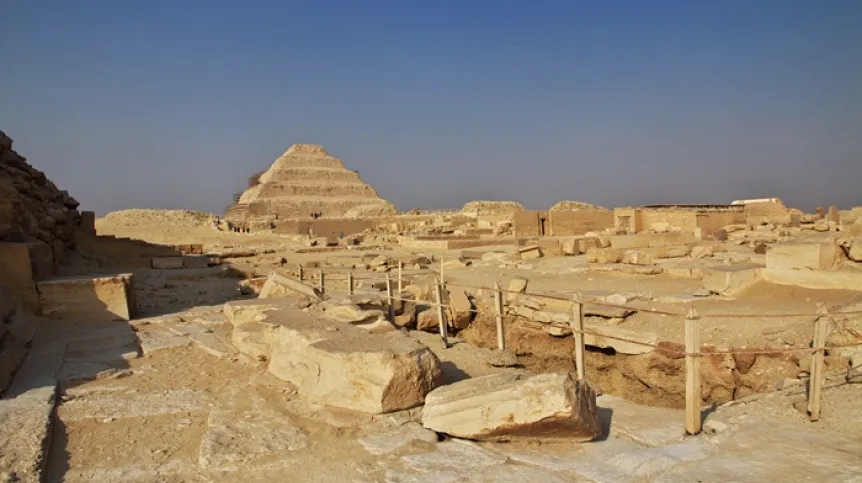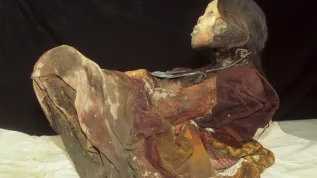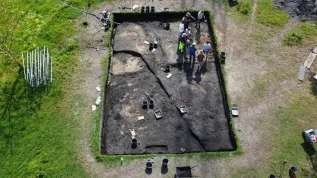
A Polish-Egyptian archaeological mission is preparing for the second season of research on the tomb of Pharaoh Shepseskaf. Planned work, including the reconstruction of the sarcophagus and research on the remains of the funerary chapel, is scheduled for early 2025.
Researchers from the Institute of Mediterranean and Oriental Cultures of the Polish Academy of Sciences, with the support of the Umbra Orientis Foundation, will return to Egypt to continue work as part of the Polish-Egyptian archaeological mission 'Pharaoh's Mastaba'.
The tomb of Pharaoh Shepseskaf is located in the ancient necropolis in Saqqara near Cairo. The tomb, associated with numerous theories and myths, has never been thoroughly studied. This mission has been entrusted to a Polish-Egyptian team.
Initial research, conducted in early 2024, focused primarily on carrying out detailed measurements of the object, including the creation of a 3D model of the tomb, and planning further fieldwork. The greatest challenges are still ahead.
In the next stage of the mission, archaeologists will explore the interior of the tomb. Reconstruction work on the destroyed basalt sarcophagus and research on the remains of the burial chapel, which adjoins the eastern wall of this monumental object, are also planned. The researchers also want to conduct preliminary archaeological work at the site of the heaps of desert sand, on the southern side of the tomb.
Financial support from external entities is necessary to continue the mission. The cost of the project, scheduled to begin in January 2025, is approximately PLN 250,000. Researchers invite sponsors to support the project and contribute to the development of global archaeological research. Over PLN 110,000 has been collected so far.
'Each donation brings us closer to discovering unknown pages of history. Shepseskaf's tomb is a unique place, full of mysteries that have been stimulating the imagination of archaeologists around the world for years. Thanks to the support of donors, we will be able to continue our work and make a new contribution to the development of global knowledge about ancient Egypt', says Teodozja Rzeuska, PhD, head of the 'Pharaoh's Mastaba' mission.
The Umbra Orientis Foundation of the Institute of Mediterranean and Oriental Cultures PAS, which supports the mission, has prepared sponsorship packages. They include not only the promotion of donors, but also the opportunity to travel with archaeologists around Egypt and receive unique souvenirs made by Egyptian craftsmen, and even meet Polish researchers directly at the research site, the Shepseskaf's mastaba. Additionally, donors can visit Egyptian museums, take advantage of a guided tour of Saqqara with an archaeologist, and participate in the 'pharaoh's feast' in the shadow of the pyramids.
ekr/ zan/













